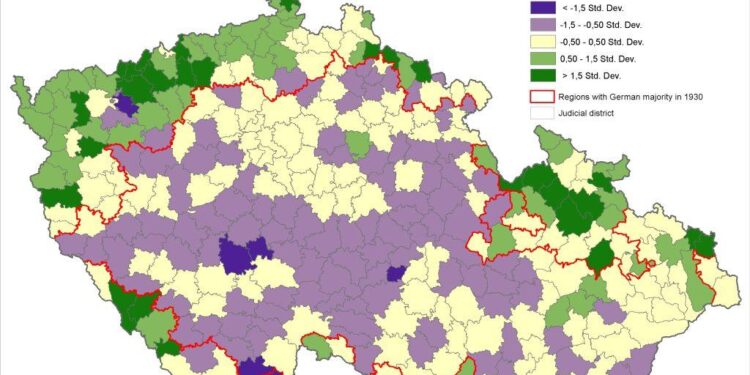Prague-Czech Prime Minister Andrej Babis, who secured a decisive victory in the recent parliamentary elections, announced his intention to finalize coalition negotiations by early November. Speaking to Reuters, Babis emphasized the urgency of forming a stable government amid ongoing economic and political challenges. The outcome of these talks will determine the country’s leadership direction as the Czech Republic navigates regional and international pressures.
Babis Seeks Swift Coalition Formation to Ensure Political Stability
Andrej Babis, the frontrunner in the recent Czech elections, has expressed a determined intent to finalize coalition negotiations by early November. This swift move aims to consolidate political authority and prevent prolonged instability ahead of crucial legislative sessions and the upcoming winter season. Sources close to the talks indicate that Babis is prioritizing agreements with key centrist and right-leaning parties to secure a workable majority in the lower house of Parliament.
Key factors influencing the coalition discussions include:
- Policy alignment on economic recovery post-pandemic
- Shared commitment to EU cooperation and fiscal responsibility
- Negotiation over ministerial portfolios critical to domestic reforms
| Party | Current Poll Share | Coalition Stance |
|---|---|---|
| ANO 2011 (Babis) | 27% | Leading talks, open to broad alliances |
| Christian Democrats | 10% | Focus on fiscal conservatism |
| Social Democrats | 7% | Flexible but cautious |
Key Policy Priorities to Shape Post-Election Government Agenda
Amidst coalition negotiations, Prime Minister Andrej Babis has delineated several core policy goals that will likely define the next government’s agenda. Central to these priorities is economic stability, with a focus on stimulating growth while guarding against inflationary pressures. The government aims to prioritize investments in green technologies and digital infrastructure, signaling a commitment to sustainability and modernization. Social welfare reforms are also on the table, with particular emphasis on improving healthcare accessibility and pension systems to support a demographic shift towards an aging population.
In addition to economic and social objectives, the government’s security strategy underscores bolstering cybersecurity measures and strengthening regional cooperation within the EU framework to address emerging geopolitical challenges. Key sectors targeted for reform include education, with initiatives designed to enhance vocational training and innovation capacity. Below is a concise overview of the main policy areas and their intended focus:
| Policy Area | Primary Focus |
|---|---|
| Economic Stability | Inflation control, growth stimulus |
| Green & Digital | Investment in renewables, digitalization |
| Social Welfare | Healthcare access, pension reform |
| Security & Cooperation | Cybersecurity, EU collaboration |
| Education | Vocational training, innovation |
Experts Recommend Transparent Negotiations to Build Public Trust
In light of ongoing coalition talks following the Czech election, political experts emphasize the crucial role of transparency in fostering public trust. They argue that an open approach, where negotiation details are communicated clearly and regularly, can mitigate skepticism and misinformation among the electorate. By sharing the key stages of discussions and the major points of agreement or contention, leaders like Andrej Babis can demonstrate accountability and reinforce democratic values.
Key practices recommended by experts include:
- Regular press briefings detailing negotiation progress.
- Clear disclosure of coalition priorities and compromises.
- Engaging civic groups and opposition voices in public forums.
- Publishing concise summaries of coalition agreements upon closure.
| Negotiation Aspect | Recommended Transparency Measure |
|---|---|
| Policy Priorities | Public release of joint manifestos |
| Decision Deadlines | Announced timelines with milestones |
| Conflict Resolution | Regular updates from mediators |
| Stakeholder Engagement | Open consultative meetings |
To Conclude
As Andrej Babis moves forward with coalition negotiations, all eyes remain on whether he can secure majority support to form a stable government. With a target to conclude talks by early November, the outcome will significantly shape the Czech Republic’s political landscape in the months ahead. Observers will be closely watching developments as parties work to bridge differences and outline a common agenda.
















